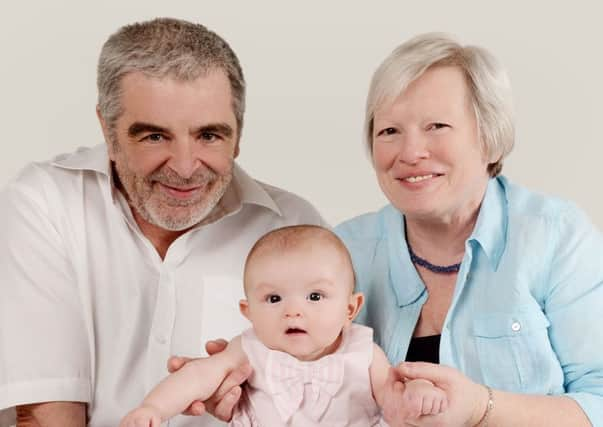Scots woman can smell if someone has Parkinson’s disease


Joy Milne’s husband, Les, died earlier this year at the age of 65 after living with Parkinson’s for 20 years.
Mrs Milne, 65, from Perth in Scotland, said: “I’ve always had a keen sense of smell and I detected very early on that there was a very subtle change in how Les smelled. It’s hard to describe but it was a heavy, slightly musky aroma. I had no idea that this was unusual and hadn’t been recognised before.
Advertisement
Hide AdAdvertisement
Hide Ad“I watched with interest how research had uncovered distinctive smells associated with certain diagnoses and when I was attending a Parkinson’s UK research lecture at the University of Edinburgh a few years ago I mentioned it to the researcher, Dr Tilo Kunath.
“Tilo was interested and together we worked out ways to see if I could detect it from other people with Parkinson’s and not just Les. It turned out I could.”
The new study aims to identify small molecules secreted by the skin that are believed to emit a subtle but unique scent in people in the early stages of Parkinson’s.
Researchers believe that Parkinson’s may affect a change in the sebum - an oily substance in the skin - that results in a unique odour.
Mrs Milne was able to identify people with Parkinson’s just from the T-shirts they had slept in.
The Parkinson’s UK charity is now funding researchers at Manchester, Edinburgh and London to study around 200 people with and without Parkinson’s.
The experts will analyse skin swabs to identify small molecules that are found in people with Parkinson’s, with the hope of creating a diagnostic test.
The team will also use “human detectors” - people with exceptional smelling abilities - to back up the study.
Advertisement
Hide AdAdvertisement
Hide AdMrs Milne said: “For Les, the destructive nature of his Parkinson’s meant that he soon struggled with some simple things, like playing a game of darts with his family.
“Previously he was a good darts player, but as the condition progressed he would find that he would drop the dart as it left his hand.
“Les was really supportive of the research and he was confident that an early diagnosis could mean earlier treatment. He’d be thrilled to know that this research has the potential to help make other people’s lives better.”
Professor Perdita Barran, leading the research at the Manchester Institute of Biotechnology (MIB), said: “It is hoped that these results could lead to the development of a non-invasive diagnostic test that may have the ability to diagnose early Parkinson’s - possibly even before physical symptoms occur.”
Dr Arthur Roach, director of research at Parkinson’s UK, said: “It’s very early days in the research, but if it’s proved there is a unique odour associated with Parkinson’s, particularly early on in the condition, it could have a huge impact.”
One in 500 people in the UK have Parkinson’s, which can leave people struggling to walk, speak and sleep. Some 127,000 people in the UK live with the condition.